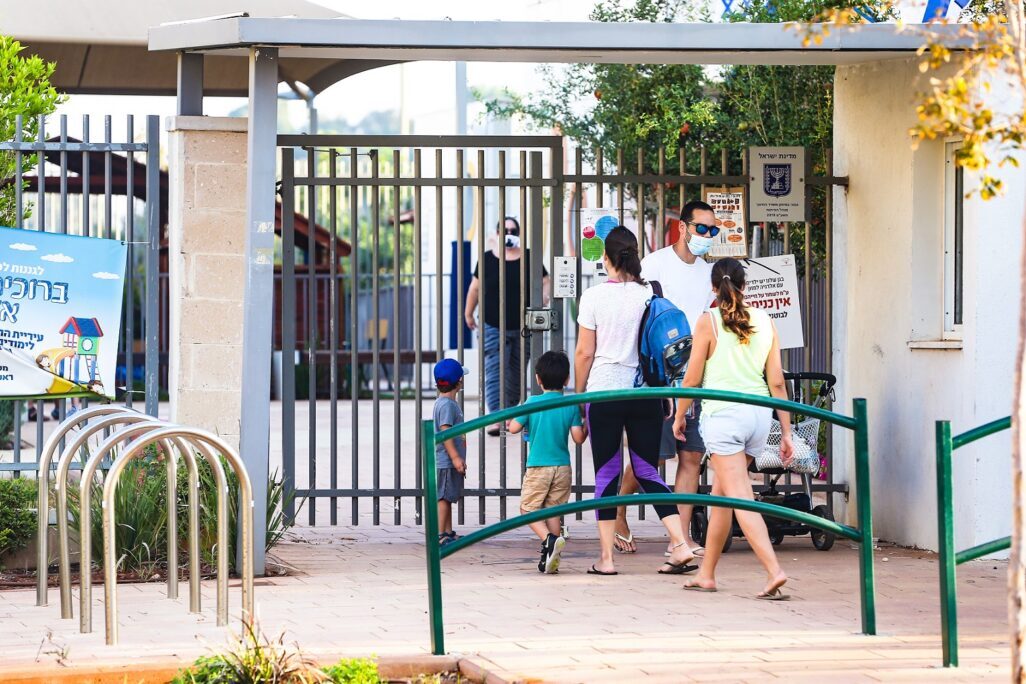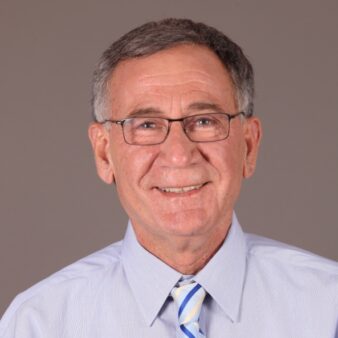
The municipality of Herzliya is promoting creative solutions to deal with the shortage of hundreds of education workers in the lead-up to the coming school year. Options were examined for the recruitment of aides, teachers, and missing workers at a round table meeting attended by senior officials of the Herzliya municipality, the Federation of Local Authorities, and school principals.
Among the proposals examined were financing transportation for aides outside the city and enlisting additional support such as soldiers, pre-army service year volunteers, and students. Other approaches the city has already taken include funding the retraining of university graduates for teaching, recruiting retirees from the education system for teaching positions, and extracurricular classes delivered by parents from the city.
According to data from the municipality, the city lacks 150 assistants in all positions — kindergarten aides, student aides in special education, and medical aides; primary schools in the city lack 90 teachers and high schools require an additional 30 teachers. Among all the schools in the city, there are 20 administrative and support workers needed.
But Herzliya is not alone. The Federation of Local Authorities in Israel reports a national shortage of at least 2,000 aides, and schools throughout the country are facing a general shortage of teachers. The salary conditions for both the teachers and the aides are determined by national agreements, so unlike the private sector labor market, even municipalities that can pay a higher salary are unable to do so. Within this reality, financially stable authorities are trying to direct resources to recruit education workers.
"Put things on the table and find solutions"
"The shortage of educators is a national problem," said the Director of the Department of Education and Values in the Herzliya Municipality, Dr Yaakov Nahum. "You see it in the colleges where students barely show up. We want to put things on the table in front of all the parties responsible for education in the city, and together find solutions."
The meeting was initiated by Mayor Moshe Fadlon and City Manager Ehud Lazar. In attendance were Deputy Mayor and holder of the education portfolio Aya Prishkolnik, the Director of Human Resources Division Gil-ad Sordo, representatives of the municipal parent leadership and principals of the schools in the city. Apart from them, officials from the Federation of Local Authorities came to the discussion: Head of Employment Agreements and Wages Division Hagit Magen and Vice President of Education, Social Services and Community Administration Michal Menkes
Nahum described a series of ideas and initiatives brought up at the meeting, some of which are already being implemented.
"We are looking into the possibility of regular transportation from all over the country for aides to work in kindergartens and educational institutions," he said. In response to the question of whether there are certain places from which they intend to apply for aides, he answered: "from wherever possible."
Another move is the recruitment of additional personnel, partly voluntary and partly paid, in the form of teaching assistants in the schools.
"We do not want to give up on the quality of education, so we have given thought to who we are interested in recruiting. Apart from soldiers, pre-army service year volunteers and university mentors will undergo professional training. We are also appealing to retirees from the education system, who will be employed through a human resources company. So far we have recruited five, and we hope to manage to recruit more."
The municipality is also financing university graduates in the city to be retrained in the field of teaching. According to Nahum, so far 16 new teachers have been recruited in this framework.
Additional ideas raised are still under review.
“A thought arose to give academic training in teaching to high-performing high school students, as a long-term solution," Nahum said.
Another direction is structural changes in elementary schools, to deal with the shortage of classroom teachers. The change includes dividing classes of 34 students into groups of 1, each of which will have a 'facilitator', a position equivalent to an educator, for which they will receive an educational reward. According to Nahum, the source of the shortage of elementary teachers is mainly educators who are required for many face-to-face teaching hours.
"In the first stage, this solution will be localized," said Nahum. "Later on, we will examine it on a systemic level."
Another move presented by Nahum is a program of extracurricular classes run in schools by volunteer parents from around the city, even though it cannot address the core issues of the lack of teachers and classroom educators.
"We call it the 'mentor program,' and it is expected to expand this year. As part of the program, parents teach areas that are not taught in school, such as medicine and finance, once a week for an entire year," he said.

The mayor of Herzliya, Moshe Fadlon, said at the meeting that the workforce shortage in the education system is a national problem that endangers the future of the State of Israel, and demanded that the government address it as soon as possible.
"The municipality of Herzliya has raised the banner for the promotion of the field of education, and we will do everything to maintain a high-quality education system in the city. I lose sleep over this issue, and all the municipal officials, together with the leadership of the parents, are doing everything to find positive and creative solutions. I call on the state to come to its senses and act quickly to deal with the challenging problem we have encountered so that we can open the new school year properly, and that every child will have a positive, professional, and supportive framework to come to every morning."
This article was translated from Hebrew by Jonathan Epstein.






